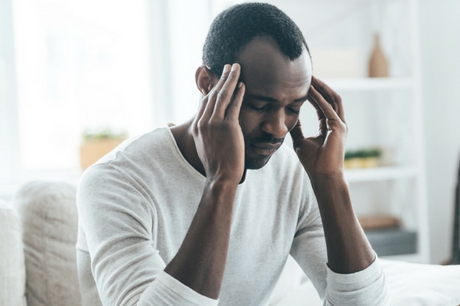Yes, young people can have strokes, too
Strokes don’t just happen to older folks
Many people think of strokes as a health issue for only the older population. And that’s with good reason—your risk of a stroke increases with age. However, the reality is that a stroke can happen at any age.
In fact, about 10 percent of the 800,000 strokes in the U.S. each year strike adults younger than 45 years old.
A stroke, a.k.a. a “brain attack,” happens when blood flow is cut off to an area of the brain or an artery in the brain bursts open.
“When a stroke occurs, brain cells are deprived of oxygen and begin to die. Abilities controlled by the part of the brain affected by the stroke, such as memory and muscle control, can be lost when brain cells die,” said Geisinger vascular neurologist Ramin Zand, M.D.
While some small strokes may result in temporary weakness of an arm or leg, some people may be permanently paralyzed on one side or lose their ability to speak after a larger stroke. Some people can completely recover from a stroke, but more than two-thirds of stroke survivors end up having some type of disability.
“A stroke can be devastating at any age, but the aftermath of a stroke can be more difficult on a younger person in the prime of their life and during what is typically a person’s most productive years,” said Dr. Zand.
Although the overall rate of stroke is decreasing, especially in adults over 65, studies suggest that brain attacks are on the rise among younger adults. Researchers believe part of this is due to rising rates of obesity, diabetes, and high blood pressure among younger adults, which are major stroke risk factors.
“Most often, a stroke in an older adult is due to a blood clot that has formed inside the heart or a blood vessel that breaks loose and travels to the brain due to a lifetime of bad habits. In a younger adult strokes typically result from rare conditions, including tears in artery walls called dissections, or defects in the heart that release clots,” said Dr. Zand.
Stroke recovery is also different for younger adults. When a younger person suffers from a stroke, they may face a lifetime of recovery and a loss of many productive years—about 15 to 30 percent of people who have a stroke have some type of long-term disability. However, a younger person has the benefit of better neuroplasticity, which is the brain's ability to adjust, form new circuit, and learn new skills.
“The most effective way to minimize the long-term effects of a stroke is to identify and treat it with anti-clotting drugs within three hours of the initial symptoms. A major stroke can kill nearly 2 million brain cells a minute. That’s why patients who receive such treatments right away fare better. But this can be difficult for a younger stroke patient—the symptoms can be subtle and medical professionals may attribute them to something else in a younger person,” said Dr. Zand.
The stroke symptoms of numbness or weakness on one side of the body and slurred speech may make a proper diagnosis easier for a healthcare provider. But if a younger patient complains of dizziness or headache, they may consider other possible conditions before diagnosing a stroke.
Delayed stroke treatment may also be due to the patient.
“Younger stroke victims, especially women, tend to wait to get to the hospital, writing off early symptoms or waiting to see if they’ll go away before they seek help. They may not be aware of stroke symptoms or think they’re too young to have a stroke, which is why it’s important for everyone to know the signs and symptoms of a stroke,” said Dr. Zand.
The signs of a stroke are:
- Sudden weakness or numbness of the face, arm or leg, especially on one side of the body
- Sudden confusion, trouble speaking or understanding
- Sudden trouble seeing in one or both eyes
- Sudden trouble walking, dizziness, loss of balance or coordination
- Sudden severe headache with no known cause – think a headache that comes on like a thunderclap
If you think you or a loved one is having a stroke, call 9-1-1 and get to a hospital immediately.
Vascular neurologist Ramin Zand, M.D., is the northeastern regional stroke director for Geisinger Wyoming Valley Medical Center (GWV) in Wilkes-Barre and Geisinger Community Medical Center (GCMC) in Scranton.

